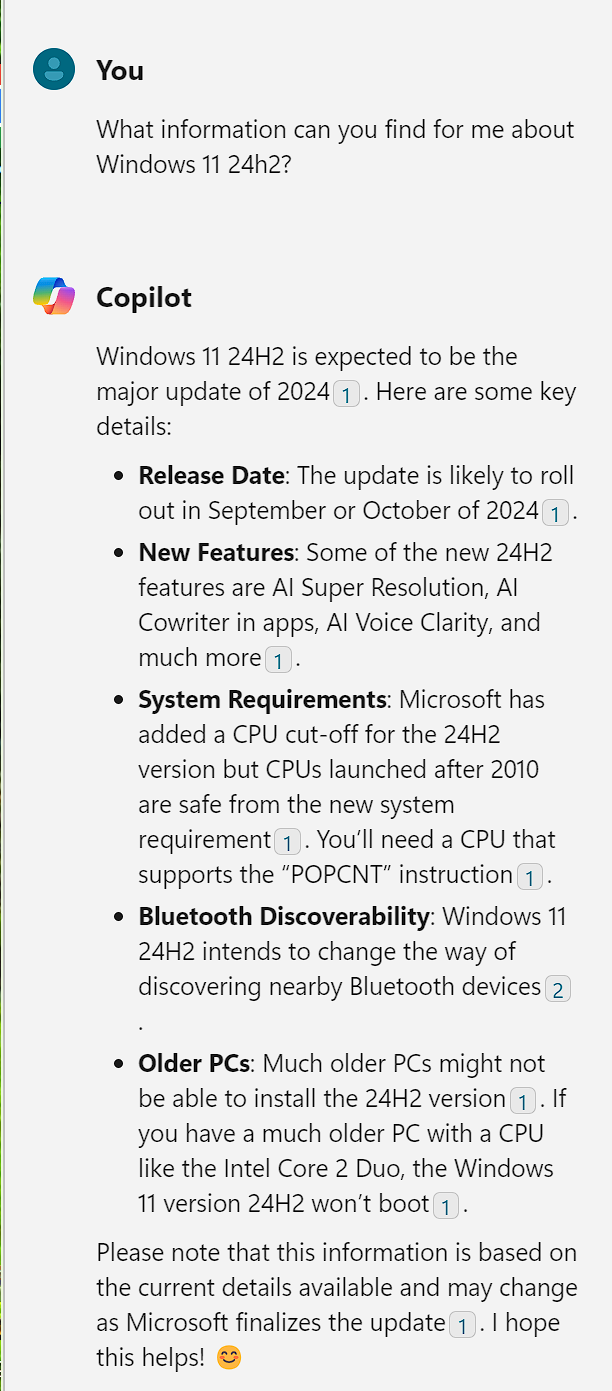I feel windows telemetry exist without copilot:Windows obviously has access to the data, but it runs locally and has no reason to send user data anywhere.
https://www.extremetech.com/computi...lects-an-awful-lot-of-telemetry-about-your-pc
Would copilot augment that, should be easy enough to spot on the traffic that get out ( I get not just wanting to take time to check if that the case too, if we really do not want it anyway, what is mind-boggling it is the intensity of the reaction to it)
![[H]ard|Forum](/styles/hardforum/xenforo/logo_dark.png)
